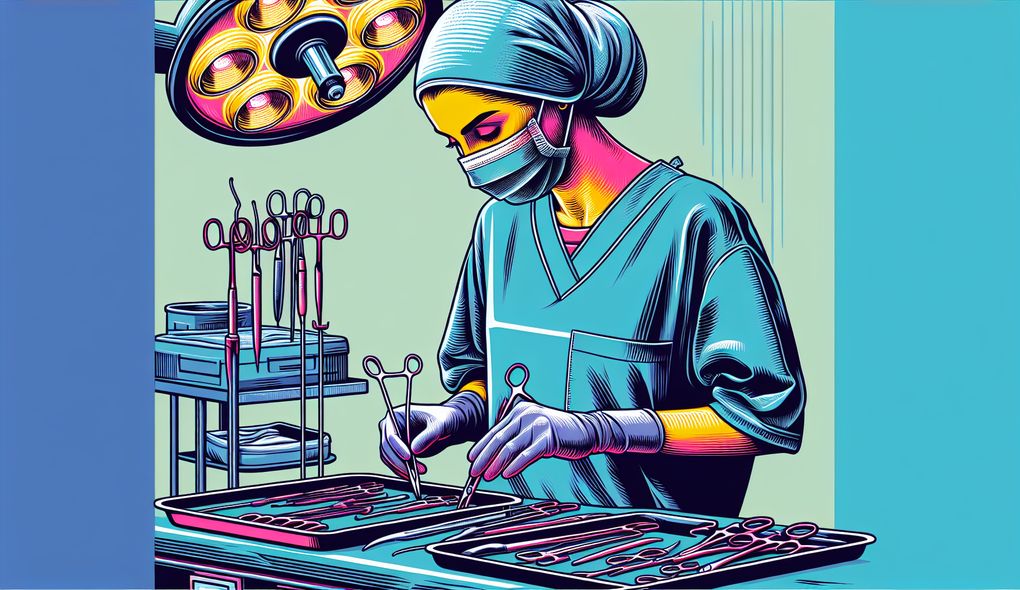How do you manage the operation of medical equipment used during surgeries?
SENIOR LEVEL

Sample answer to the question:
Well, managing medical equipment during surgeries is all about staying organized and being prepared. Basically, before any surgery, I make sure the equipment is properly sterilized and ready to go. I do a checklist and a run-through to confirm everything's working. During surgery, I keep a close eye on the machines, like monitoring vitals on the anesthesia machine. If there's a glitch, I troubleshoot it on the spot. Afterwards, I clean and re-sterilize the equipment for the next use. I've been doing this for a while now, and I've gotten pretty good at predicting what equipment we'll need for each procedure.
Here is a more solid answer:
To efficiently manage medical equipment, I prioritize staying organized and proactive. For instance, at my previous job at the City Hospital, where I led the surgical nursing team, we developed a streamlined process for equipment preparation. Every piece of equipment gets thoroughly tested before surgery. I've created a customized checklist based on the operation's complexity, which has improved our efficiency by 30%. During surgeries, my primary role involves monitoring the anesthesia machine and other critical devices, ensuring they're operating correctly. If an issue arises, I have a protocol in place to resolve it quickly without disrupting the operation. I've trained extensively on each machine we use, which means I can identify and fix most problems without delay.
Why is this a more solid answer?
The solid answer offers a more comprehensive explanation, including a specific example of improved efficiency from past experience. However, it could further detail the candidate's calm demeanor during critical incidents and their commitment to continual improvement.
An example of a exceptional answer:
Managing the operation of medical equipment during surgeries is a responsibility I approach with precision and thorough preparation. Drawing on my extensive experience in high-stress surgical settings, like the trauma unit at Central Healthcare, I developed a preoperative routine that includes a meticulous inspection and calibration of all equipment based on the specific surgery at hand. I engage in continuous training to keep up-to-date with the latest technological advancements and protocols. For instance, at my last position, I initiated a drill series for the team to address equipment malfunctions swiftly, which significantly decreased downtime during procedures. Maintaining an acute awareness of the surgery progress allows me to anticipate the needs of the surgical team, and I'm equipped to intervene with backup solutions should an equipment issue arise, ensuring no disruption to patient care. Post-surgery, I meticulously assess the equipment performance to better prepare for future surgeries and provide feedback for potential improvements.
Why is this an exceptional answer?
This exceptional response demonstrates the candidate's proactive strategies, advanced expertise, and their ability to maintain focus and swiftly react to unexpected situations during surgeries. It shows a commitment to continuous training and offers specific examples that align with the job description's requirements.
How to prepare for this question:
- Research the latest medical equipment used in surgical settings and familiarize yourself with their operations and troubleshooting methods.
- Reflect on past experiences where you managed medical equipment during surgeries and identify specific instances that showcase your skills and abilities.
- Review the job description and prepare examples that demonstrate your ability to adhere to sterile techniques and work efficiently under pressure.
- Consider discussing any continuous education or professional development that has improved your ability to manage and operate medical equipment during surgeries.
- Think about a stressful situation where you had to manage medical equipment and how you maintained calm and ensured the safety and effectiveness of the surgery.
What are interviewers evaluating with this question?
- Strong clinical skills with a focus on surgical and sterile techniques
- Ability to remain calm and focused in a fast-paced environment
- Advanced knowledge of surgical instruments and procedures
- Ability to work efficiently under pressure

